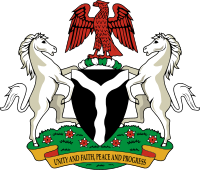
Photo from wikipedia
Background : The present study reports the indigenous knowledge of plants used for the treatment of Malaria in Ado-Ekiti Local Government Area, South-Western Nigeria. Findings include quantitative and qualitative data… Click to show full abstract
Background : The present study reports the indigenous knowledge of plants used for the treatment of Malaria in Ado-Ekiti Local Government Area, South-Western Nigeria. Findings include quantitative and qualitative data on the important species. Methods: Information was collected using semi- structured questionnaires which were administered to a total of 150 respondents, including herbalists, herb sellers, aged people and traditional medicine practitioners resident in the study area. Recipes, mode of preparation and methods of administration were noted and adequately reported in this work. All plants mentioned by the respondents were collected and carefully identified at the Forest Herbarium Ibadan (FHI). Results: A total of 36 plant species belonging to 17 families were reported to be useful. The most represented family was Fabaceae with 5 different species, closely followed by Anacardiaceae with 4 species. Sixteen (16) recipes were reported, and prominent in these recipes include Alstonia boonei, Enantia chlorantha and Zingiber officinale . Conclusions: Respondents reiterated that plant materials used were collected from the wild and traditional medicine is preferable in the treatment of malaria compared to Artemisinin-based combination therapies (ACT). We suggest further pharmacological studies to ascertain the potencies of the reported plant species. Keywords : Ado-Ekiti, malaria, ethnobotany, medicinal plants, conservation
Journal Title: Ethnobotany Research and Applications
Year Published: 2019
Link to full text (if available)
Share on Social Media: Sign Up to like & get
recommendations!